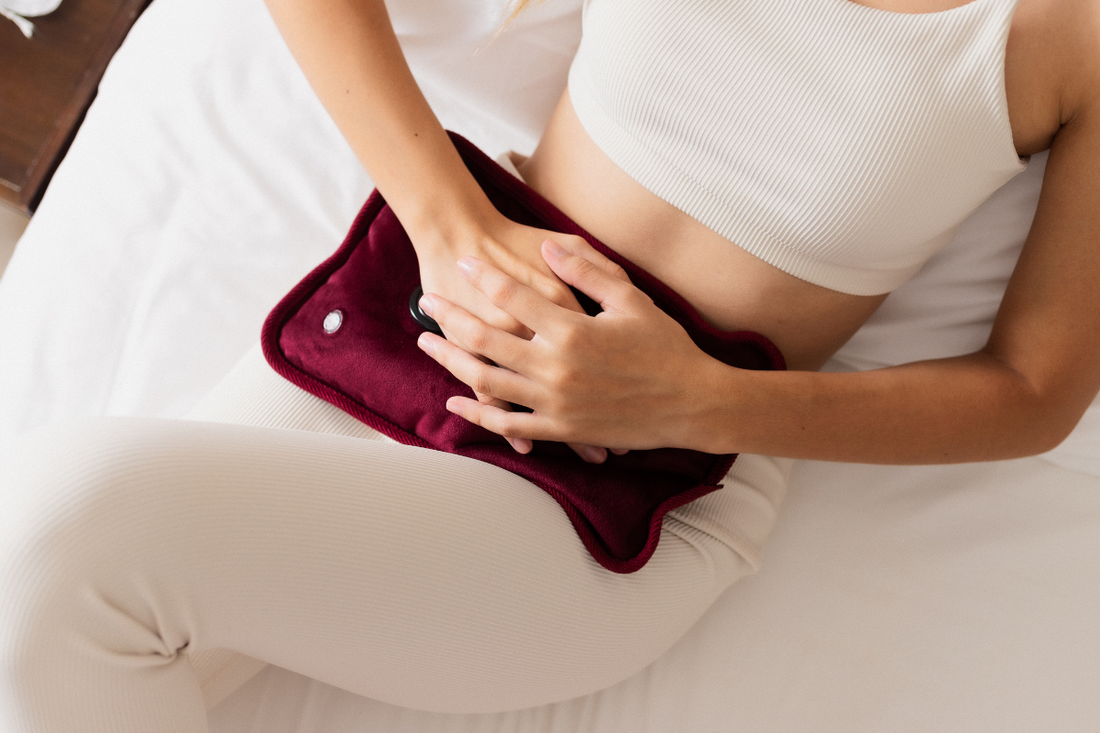
Why Do I Experience More Anxiety Around My Menstrual Periods?
Share
Suddenly, your heart beats faster, a sick feeling hits your stomach, a tightness grips your brain, and your thoughts turn gloomy—something just feels off. This wave of anxiety might be tied to a specific trigger, or it might manifest as an unexplained feeling of impending dread. Or, it might be something else: your monthly period. Ugh.
What you're experiencing is an increase in anxiety attributed to menstrual hormonal shifts. These big hormonal changes can lead to symptoms of premenstrual syndrome (PMS) or even more intense premenstrual dysphoric disorder (PMDD).
Heartache From Hormones
Something is conducting our menstrual cycle: the delicate dance of hormones, namely estrogen, and progesterone.
Throughout the menstrual cycle, the levels of these hormones fluctuate and dip, affecting various bodily functions and, more relevantly, mood and anxiety. The intricate dance of hormones, particularly estrogen, and progesterone, plays a crucial role in the menstrual cycle and influences physical and emotional states.
The relationship between stress and menstruation is a two-way street. On one hand, the physical discomfort and mood swings associated with menstruation can exacerbate feelings of stress. On the other, if one is already stressed, the emotional symptoms of PMS or PMDD (Premenstrual Dysphoric Disorder) can be more pronounced.
Estrogen and its Fluctuations: After menstruation, is the follicular phase, when there's a notable rise in estrogen levels. This surge often translates to an uplifted mood and a spike in energy for many.
Yet, this isn't a consistent climb. Just as ovulation is on the horizon, there's a dip in estrogen levels that is short-lived, as estrogen then dramatically peaks during ovulation. Following ovulation, the cycle enters the luteal phase, and this is when estrogen levels start its gradual descent. As these levels taper, and when factored in with shifts in other hormones, it's not uncommon for individuals to grapple with feelings of anxiety and mood disturbances.
Progesterone: As ovulation concludes, progesterone starts to rise. Progesterone's primary responsibility is to prep the uterus for a potential pregnancy, but progesterone also can sway emotional states. As its levels rise, many report feelings of fatigue and frustrating mood swings. For some, these shifts in mood can intensify further, culminating in anxiety.
Understanding these hormonal shifts and their impact on mood and emotions is crucial for anyone navigating the complexities of the menstrual cycle. Awareness can pave the way for better-coping mechanisms, support, and, if needed, interventions.
Additional Information
Beyond the hormonal fluctuations, various external and internal factors can exacerbate feelings of anxiety during menstruation.
- Physical Discomfort: Painful cramps, bloating, and persistent headaches can significantly dampen anyone's mood. These physical symptoms don't just cause discomfort—they also serve as direct catalysts for anxiety. The body's response to pain and discomfort can lead to heightened emotional sensitivity, making one more susceptible to anxious feelings.
- Lifestyle and Diet: Daily habits, particularly related to diet and lifestyle, can be allies or foes for menstruation. Having multiple cups of caffeine or consuming a lot of sugar, for instance, can amplify feelings of restlessness and anxiety. Other factors, like not having proper sleep, not maintaining a balanced diet, or indulging in increased alcohol consumption can further tilt the emotional balance, making anxious symptoms feel more pronounced.
- Past Traumatic Experiences: Menstruation, for some, isn't just a physiological process, it can also be an emotional trigger. For individuals who have endured traumatic experiences, menstruation can serve as a painful reminder of the past.
What Can Be Done To Mitigate Menstrual Anxiety?
The first step is to make the personal link between heightened anxiety and their menstrual cycle. Once acknowledged, various strategies can help manage and reduce anxieties, like:
- Track Your Cycle: Using apps or journals can help you anticipate and prepare for mood fluctuations.
- Lifestyle Modifications: Regular exercise, a balanced diet, reduced caffeine, and getting adequate sleep can all help alleviate symptoms of anxiety.
- Relaxation Techniques: Deep breathing exercises, meditation, and progressive muscle relaxation can be beneficial.
- Use OVY Relief: A vaginal suppository that delivers high-dosage CBD and CBG for menstrual relief right to the spot! Knowing you have a reliable soothing experience right around the corner can help ease any stress and anxiety.
- Cognitive Behavioral Therapy (CBT): For those with severe symptoms, therapy can help identify and change negative thought patterns.
Conclusion
The relationship between menstruation and anxiety is multifaceted, rooted in hormonal changes, brain chemistry, and external factors. If you or someone you know is experiencing heightened anxiety around their menstrual cycle, knowledge is the first step towards empowerment, and with the right tools and resources, one can navigate these emotional waves with greater ease.
